1. The Simpsons – Cameo of Smartwatches & Autocorrect
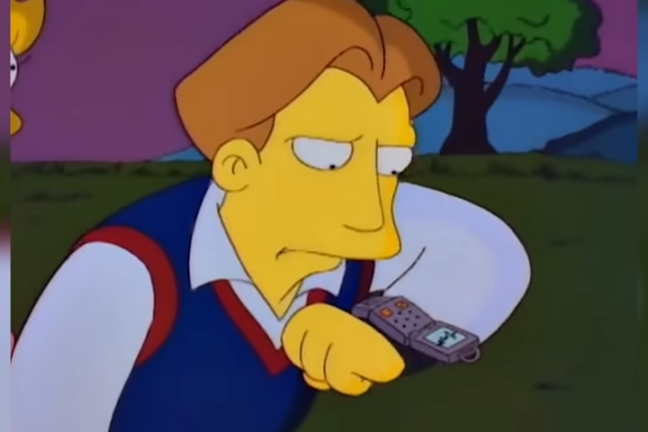
The Simpsons has been a prophetic force in popular culture, predicting technological advancements and societal trends with eerie accuracy. Long before wrist-wearables became mainstream,The Simpsons didn’t predict smart watches in the way a prophet foretells the future, but they highlighted the potential for wrist-worn technology with a telephone function. In the episode “Lisa’s Wedding” (Season 6, Episode 19), Bart mentions a watch that “allows you to make calls. In the 2000 episode “Bart to the Future,” the show even pictured President Trump, 16 years ahead of time. The series also poked fun at autocorrect gone wrong, a daily frustration many experience today. Additionally, The Simpsons predicted smartwatches, smart home devices, tablets, video conferencing, and even Donald Trump’s presidency, showcasing the writers’ uncanny ability to tap into the zeitgeist and foresee a world few saw coming
2. Friends – Early DNA Reveal Day
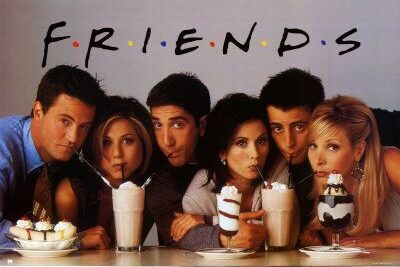
The TV show Friends demonstrated an eerie ability to predict future trends, and its portrayal of DNA testing is a prime example. In a 1995 episode, Joey and Chandler’s discussion of a paternity test based on DNA seemed like a humorous plot device at the time, but it actually foreshadowed the widespread use of DNA tests in modern life. What were once niche home-DNA kits have become routine, used not only for ancestry exploration but also for health checks. Friends captured the moment when DNA testing was still a novelty, hinting at a future where a simple spit sample could reveal intimate details about a person’s life, ancestry, and health. This episode showcases the show’s writers’ keen insight into emerging science and its potential impact on societ
3. 30 Rock – Joking About Streaming Giants
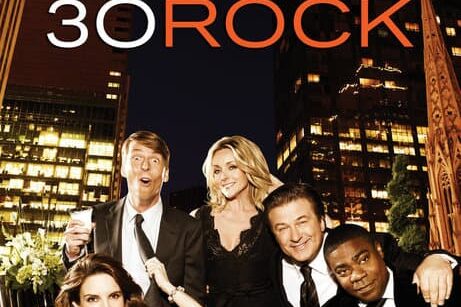
The TV show 30 Rock demonstrated its sharp wit and prescience in a 2009 episode, where it joked about a giant streaming service. This humorous reference was remarkably prophetic, as NBCUniversal would later launch Peacock in 2020, a streaming service that embodies the very concept the show had mocked years earlier. This meta-prediction showcases the show’s writers’ keen insight into the media landscape and corporate ambitions, effectively turning a joke into reality. By poking fun at the idea of a streaming giant, 30 Rock inadvertently predicted the future of television and the rise of streaming services
4. Parks and Recreation – Pawnee’s Pandemic
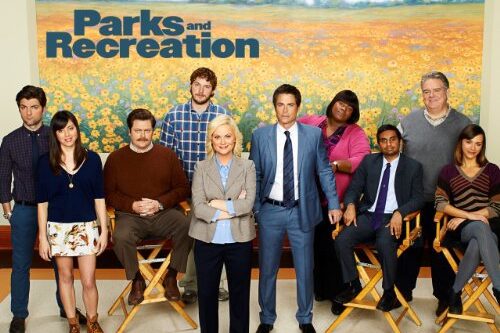
The Parks and Recreation special, aired on April 30, 2020, showcased the show’s remarkable ability to reflect reality in real-time. Created in response to the COVID-19 pandemic, the episode dramatized Pawnee under quarantine, incorporating elements like Zoom check-ins and fake commercials for virus-killing cologne, eerily mirroring the experiences of many during that time. This rapid-response creation demonstrated how fiction can quickly adapt to and reflect real-world events, often with surprising accuracy. The special’s success highlights the show’s writers’ keen observational skills and ability to tap into the cultural zeitgeist, making it a notable example of art imitating life.
5. Frasier – Electric Cars & Recycling Ahead of the Curve
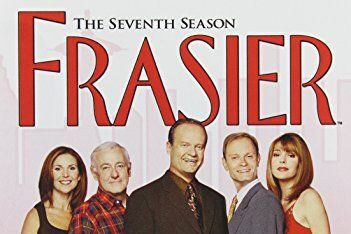
Both Frasier and The Simpsons, created by Matt Groening, showcased their forward-thinking approach by incorporating environmental themes into their storylines. In a 1999 episode of Frasier, the show casually joked about electric vehicles and recycling, long before they became mainstream. Similarly, The Simpsons, another Groening creation, later covered similar themes, demonstrating the creators’ consistent focus on highlighting important issues. Today, electric cars are ubiquitous, and recycling has become second nature in many cities, underscoring the shows’ prescience. By using humor to spotlight environmental responsibility when it was still seen as niche, these shows proved that thoughtful comedy can be surprisingly forward-looking and influential
6. Seinfeld – The Original Remote Worker
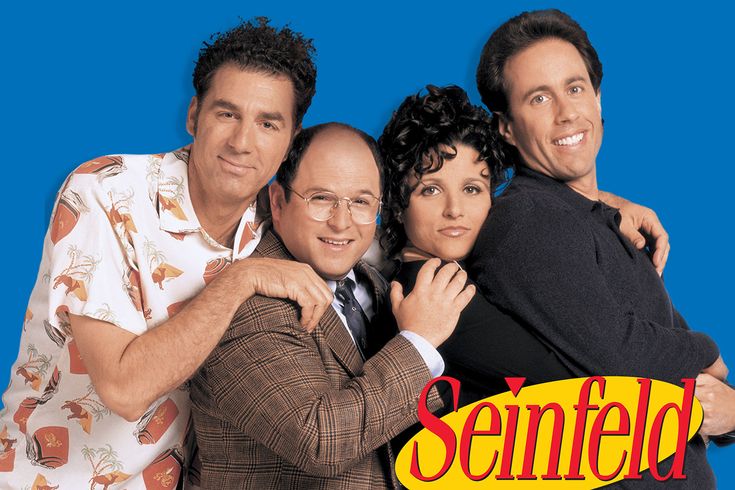
In one memorable episode, George Costanza pretends to work at the office by faking tasks; even arranging mail-sorting to appear busy on-site. Seinfeld captured what we now know as “working from home,” long before Zoom and laptops took over. Reddit fans still quote this: “George loafs at work… but no one knows what he does”. Nearly 30 years later, millions now do their jobs from home; often using the same tricks George did to look productive. It’s brilliant how a comedic ploy became everyday office life.
7. The Big Bang Theory – AI Buddies & Robot Pets
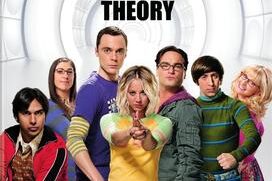
The Big Bang Theory showcased its prescience in a 2012 episode, where characters discussed AI companions and smart robot pets, concepts that seemed far-fetched at the time. Fast-forward to today, and we have virtual assistants like ChatGPT and companion robots in homes, making those ideas a reality. This episode highlights the show’s writers’ ability to tap into emerging trends and technologies, using nerdy humor to foreshadow future innovations. Their predictions, though seemingly fantastical then, have become an integral part of our lives, demonstrating the show’s remarkable foresight and the writers’ knack for spotting technological advancements on the horizon.
8. Roseanne – Spotlight on Prescription Addiction
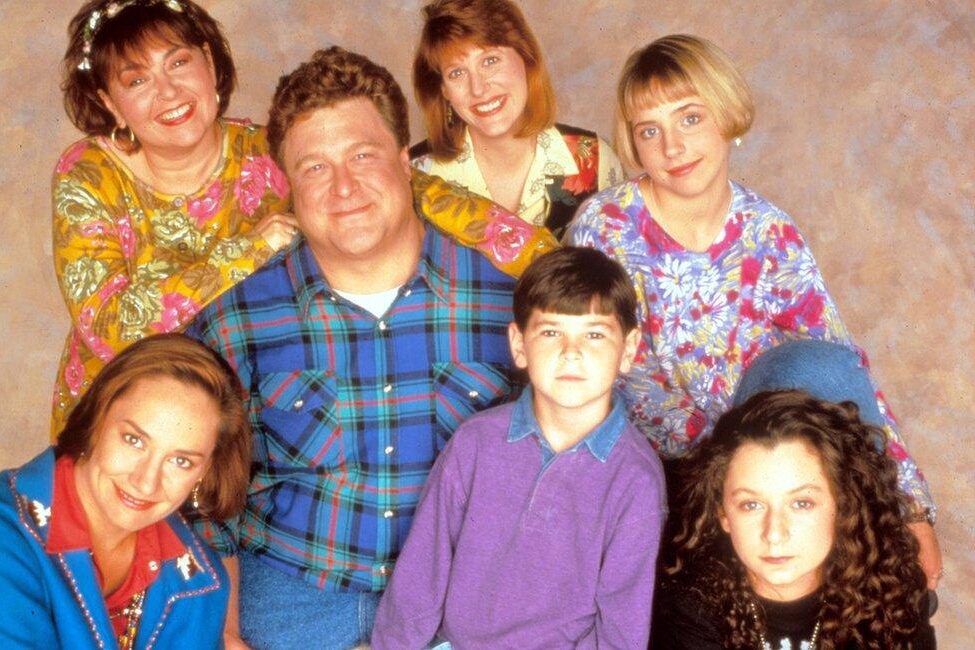
The 1995 Roseanne storyline tackling prescription pain pill dependency was remarkably prescient, capturing the struggle with startling realism years before the opioid crisis dominated headlines. This powerful narrative not only showcased the show’s ability to address tough issues but also foreshadowed a national epidemic. By portraying addiction as a complex, relatable human experience, Roseanne broke ground in its unflinching portrayal of a topic that would later become a major public health concern. Today, the show’s handling of this storyline is recognized as ahead of its time, offering a candid and painfully real exploration of dependence that resonated with audiences and anticipated a growing crisis.
9. The Golden Girls – Early Voices for LGBTQ Rights
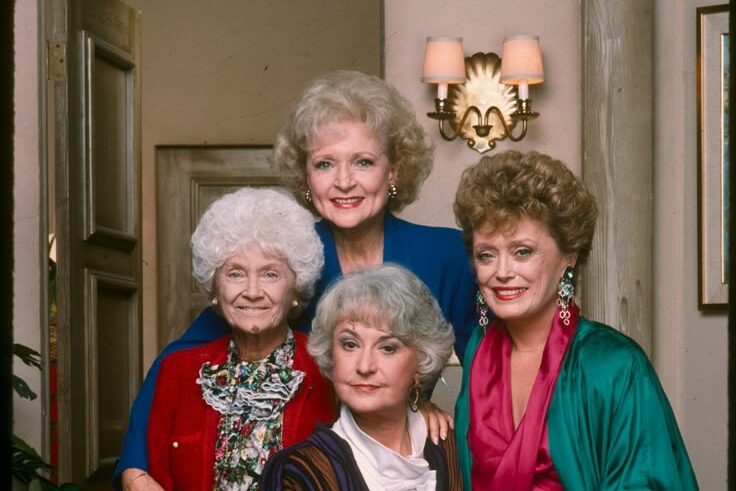
The Golden Girls was a trailblazer in representation and social commentary, featuring gay characters and discussions about same-sex marriage in the late 1980s, long before it entered mainstream political discourse. The show’s progressive portrayal of LGBTQ+ issues, including an episode that openly supports a lesbian couple’s right to wed, demonstrated its commitment to advocating acceptance and empathy. By tackling these topics with humor and heart, The Golden Girls paved the way for future generations, showcasing the power of television to shape cultural attitudes and promote understanding. The show’s forward-thinking approach was decades ahead of its time, making its impact on the LGBTQ+ community and beyond all the more significant.
10. The Fresh Prince – Police Bias in Focus
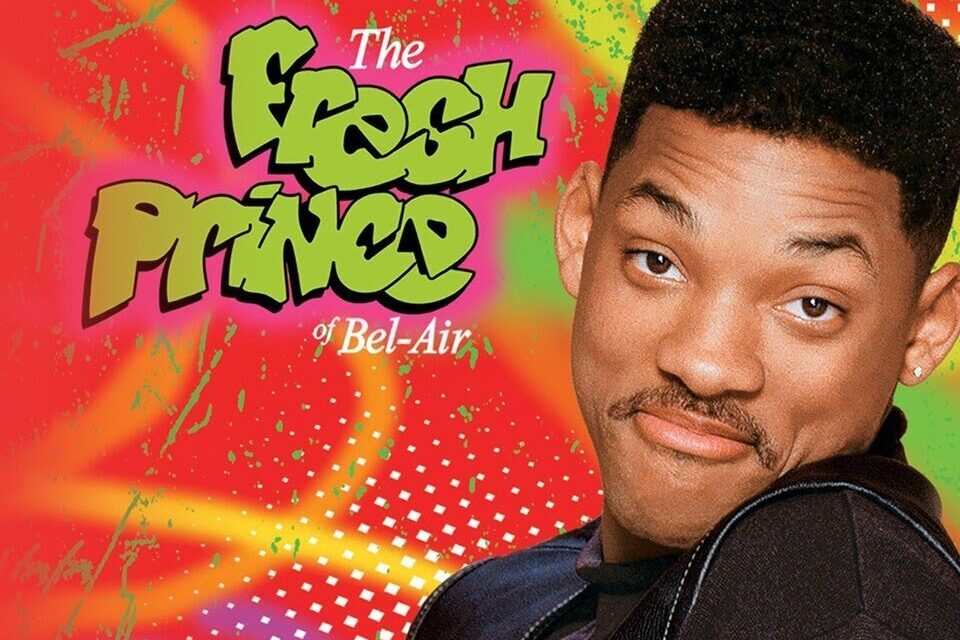
The Fresh Prince of Bel-Air’s 1994 episode “Mistaken Identity” remains a powerful commentary on racial profiling, a theme that unfortunately remains painfully relevant today. The episode’s portrayal of Will and Carlton’s tense encounter with police while driving home resonated with audiences then and continues to echo in current conversations about policing and equality. This episode serves as a stark reminder that sitcoms can tackle complex, unresolved issues with nuance and sensitivity, sparking important discussions that transcend generations. Its enduring relevance underscores the show’s impact on social commentary and its ability to address pressing issues with humor and heart
11. Murphy Brown – Early Flag for Single Moms & Media Ethics
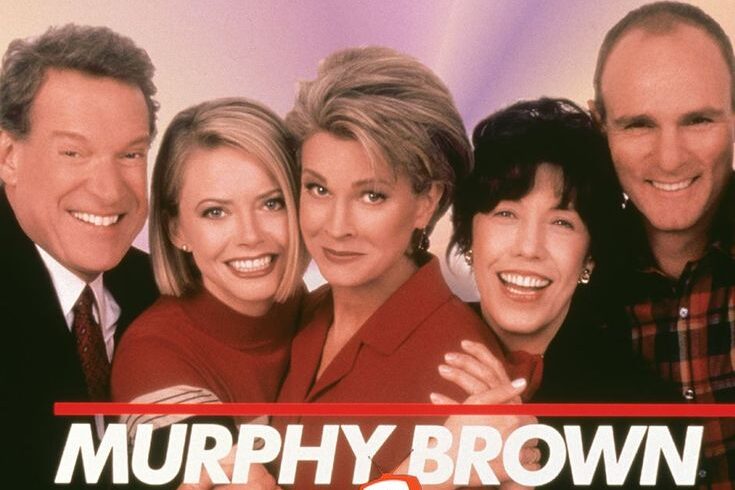
In 1991–92, Murphy Brown shocked audiences by having its titular character choose single motherhood after declining the baby’s father, sparking a national debate when Vice President Dan Quayle criticized it in May 1992. This storyline foreshadowed shifting family norms and the rise of women balancing high-profile careers with new parenting models. It also ignited essential questions about media influence, gender roles, and respect, long before they became mainstream topics.
12. Cheers – Tackling Romance, Recovery & Therapy in Everyday Life
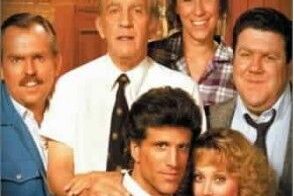
Cheers subtly wove complex real-world issues into its narrative, tackling topics like recovering alcoholics, office romances, and early therapy culture with humor and sensitivity. The character of Sam Malone, a recovering alcoholic, added depth to the show’s portrayal of addiction, while the office romances explored the intricacies of workplace relationships. By incorporating therapy culture and normalizing discussions around mental health, Cheers helped pave the way for greater cultural acceptance of support systems. The show’s approach demonstrated that sitcoms could effectively address serious issues, making them more relatable and accessible to audiences, and contributing to a shift in societal attitudes toward mental health and recovery.
13. All in the Family – Forecasting Culture Wars & Political Splits
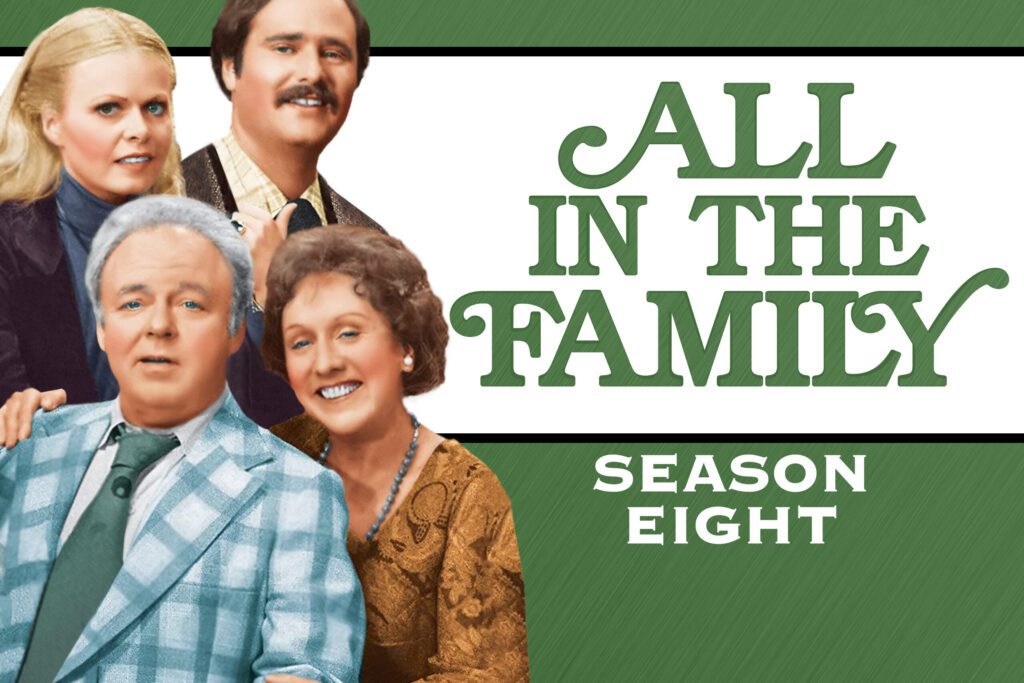
Norman Lear’s groundbreaking sitcom All in the Family (1971-1979) revolutionized television by tackling taboo topics like abortion, race, and gender roles through the iconic character of Archie Bunker. By holding up a mirror to society, the show addressed complex issues with unflinching honesty, often sparking heated debates and reflections among its audience. All in the Family’s impact extended beyond entertainment, influencing cultural discourse and foreshadowing the polarized debates that would come to define modern society. The show’s legacy continues to resonate, offering a powerful example of how television can shape public conversation and reflect the complexities of the human experience, with its themes remaining remarkably relevant today.
This story 13 Classic Sitcoms That Predicted the Future; And Got It Right was first published on Daily FETCH


